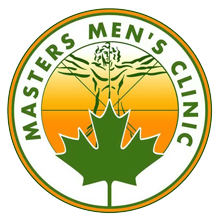Testosterone Over The Long Term?
Q: OK -so if one has Andropause– still that begs the aging/ageless question(s):
1) saying aging causes Leydig cell failure -is a circular argument//pat answer-
Why does the Leydig cell not respond to LH? ..b/c the L-cell is old? HPG axis is de-sensitized?
I’M CONVINCED THAT T.R.T. HAS GREAT BENEFITS; but what about long-term dependence? i.e. testicular atrophy ONCE you start -your gonads will shrivel-up to nothing!
IS IT POSSIBLE TO KICK-START THE “nads” in some natural way? Besides reducing adiposity (thus less aromatization of T) Resistance training, etc. Can we reduce SHBG synthesis so more T remains available? Why does the aging liver upregulate SHBG synthesis? Use an aromatase inhibitor? Chrysin is hyped as a natural anti-aromatase —but a very weak & ineffectual one I surmise.
A: There are lots of theories and few answers. We know that Leydig cell production can decrease. We know that there can be insensitivity to LH. However we also know that the testosterone receptors can become insensitive and so the same dose of testosterone will have less effect. We also know that the sex hormone binding globulin later in life can be a “rogue” type, different from the normal SHBG This rogue protein binds testosterone even more effectively than normal SHBG. When you take into account all of these factors, most men have a variety of problems.
Elevated estrogen raises SHBG. We have published a paper on the use of Letrozole to lower estrogen and thus lowers SHBG. This has worked well for our patients We have no experience with Chrisin since the methods we use to lower estrogen have been so effective.
Patients who want to maintain their fertility or testicular volume often will do well on twice-weekly HCG injections.
You hit the nail on the head by also mentioning the importance of weight reduction, strength training and a healthy lifestyle.







